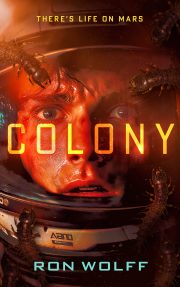Guest Blog Post: Grants for Writers–As Diverse As You Are
 Posted by Victoria Strauss for Writer Beware
Posted by Victoria Strauss for Writer Beware
Being paid for writing is the ultimate author’s dream. Today, guest blogger C. Hope Clark sheds light on an area of support that many writers don’t think of: Grants. There are plenty of them out there, if you know where to look–though, as Hope points out, you must be sure you meet their eligibility requirements, and are willing to conform to their conditions.
For much more grant information, as well as market info and contest listings, visit Hope’s website, FundsforWriters.com.
————————————————
By C. Hope Clark
When I speak at writing conferences, I’m inundated with requests about grants. I prefer to talk about funding streams – how to incorporate contests, publishing, freelance markets, jobs AND grants into a successful career that turns a real dollar. But the word “grant” stirs excitement in a room, in some cases making people tune out all else. Like winning the lottery, who doesn’t crave free money?
Grants do not have to be repaid, but that doesn’t mean they aren’t conditional. Grants come from nonprofits, government agencies, schools and foundations. These funders have responsibilities of their own, to insure that the funds are used per established guidelines. Handing money over to writers, with no strings attached, is rare indeed.
So what grants are available to writers? Are they impossible to receive? Your eligibility can depend on who you are, what you are writing, where you live, how long you’ve written, what you’ve published, where you were born, your financial need and even mobility. What you won’t find is a one-stop shop where mysterious people hand out money to new writers. What you will discover is that a writer with a clear-cut plan and serious motivation has the best chance at finding funds for a project. The following examples should open your eyes.
RESIDENCIES / RETREATS
– Grants for writers to get away and write. Applications usually require proof of publication, but some just want samples of work and a writer’s narrative on plans for the future.
Example: Grand Canyon National Park Residency (http://www.nps.gov/archive/volunteer/air.htm, http://www.nps.gov/grca/index.htm). Writers occupy a place in the park where they create their project, but they may be called upon to speak to park visitors.
ARTS-IN-EDUCATION GRANTS
Grants for artists/writers to participate in an educational setting. An artist may teach elementary school or instruct college creative writing, but s/he is paid for guiding others in the craft of writing. His/her fee or salary is paid via grant. Almost every state in the US has an AIE program through the state arts commission, often requiring the artist to qualify for a roster.
Two private grant examples for AIE grants are the Charles Lafitte Foundation (http://www.charleslafitte.org/thearts.html) and The Elizabeth George Foundation (P.O. Box 1429, Langley, WA 98260), which offer grants to unpublished fiction writers, published or unpublished poets, emerging playwrights, and organizations benefiting disadvantaged youth.
CONFERENCE GRANTS
These grants enable writers to attend a seminar, conference, workshop or teaching event. State arts commissions sometimes issue professional development grants to enable conference attendance. However, nothing beats contacting a conference organizer directly with a request for financial assistance. Even local conferences, like the South Carolina Writers Workshop Conference, offer financial aid.
Two well-known conferences with grants:
Taos Summer Writers’ Conference – http://www.unm.edu/~taosconf/
Wesleyan Writers Conference – http://www.wesleyan.edu/writing/conference/
RESEARCH GRANTS
These grants allow writers to complete research. Museums and libraries frequently give grants to those wishing to study their archives. The range of funds can vary from a small fixed figure or full room, board, stipend and transportation.
The Camargo Foundation (http://www.camargofoundation.org/) assists scholars who pursue projects in the humanities and social sciences related to French and francophone cultures. The Ezra Jack Keats Memorial Fellowship (http://special.lib.umn.edu/clrc/kerlan/awards.php) offers funds to writers and/or illustrators of children’s books who wish to use the Kerlan Collection for the furtherance of artistic development.
FELLOWS
Fellows are grants/stipends for internships, teaching while writing, or participating in an exchange program.
The Arthur F. Burns Fellowship (http://www.icfj.org/burns.html) offers ten young print and broadcast journalists from the US and Germany the opportunity to share professional expertise. The Gilman School (http://www.gilman.edu/) selects an annual fellow to assist in the education of the K-12 students through creative writing and a literary magazine.
EMERGENCY GRANTS
Grants for established writers with financial or medical difficulties. FundsforWriters posts a long list of such grants at its website (http://www.fundsforwriters.com/grants.htm)
One example is the Carnegie Fund for Authors (http://www.artisttrust.org/node/340), which gives emergency assistance to needy writers who have commercially published at least one book. Another is the John Anson Kittredge Educational Fund, which has no website but can be reached at P.O. Box 2883, Cambridge, MA 02138. Its grants are awarded to artists in very special needy circumstances.
HUMANITIES GRANTS
These grants usually incorporate a group and/or community project that features some aspect of the humanities.
Each US state has a humanities council, with one example being Oklahoma Humanities Grants (http://www.okhumanitiescouncil.org/grants). A private entity embracing the humanities is Honoring Our Ancestors (http://www.honoringourancestors.com/grants.html), which endorses web sites, family newsletters, reunions, research or genealogical clubs and groups.
JOURNALISM GRANTS
For journalists pursuing specific projects, attending events, or receiving training.
Two strong examples are Rosalynn Carter Mental Health Journalism Fellowships (http://www.cartercenter.org/), which are open to journalists with two years’ experience in mental health journalism, and Casey Journalism Center on Children and Families (http://www.journalismcenter.org/), which recognizes journalists covering social issues of children and families.
PROFESSIONAL ORGANIZATION GRANTS
Helen McCloy/Mystery Writers of America Scholarship for Mystery Writing (http://www.mysterywriters.org/?q=AwardsPrograms-McCloy). This organization seeks to nurture talent and professional development in mystery fiction, nonfiction, playwriting, and screenwriting.
The Society of Children’s Book Writers and Illustrators (http://www.scbwi.org) sponsors several grants for completion of children’s by published and unpublished authors.
ETHNIC GRANTS
Grants for specific ethnic groups can be found not just through writing venues.
The Foundation for Jewish Culture (http://www.jewishculture.org/) is quite generous in its grants for those of or writing about Jewish culture. The Cintas Foundation (http://www.cintasfoundation.org) supports creative artists of Cuban lineage who are currently residing outside of Cuba.
FISCAL SPONSORSHIP
Probably the most misunderstood grant opportunity of all, fiscal sponsorships require collaboration between writer and a nonprofit entity. Many more grants go to nonprofit entities than individuals, mainly due to income tax regulations. Fiscal sponsorship enables a nonprofit organization to apply for a grant on a writer’s behalf, subtracting an administrative fee in exchange for its services.
New York Foundation for the Arts (http://www.nyfa.org)–this remarkable arts foundation is one of the most adept at sponsoring writers and artists through a fiscal sponsorship program.
The Witter Bynner Foundation for Poetry (http://www.bynnerfoundation.org/) endorses grants through nonprofit organizations, particularly as seed money, in support of individual poets, poetry translation and the process of translation, developing poetry audiences, and the uses of poetry.
Furthermore Grants by the JM Kaplan Fund (http://www.furthermore.org) considers nonfiction book publishing grants.
Use the same diligence you channel into your writing when seeking a grant. The best reward for landing one of these jewels is that one award perpetuates another. Funders put heavy stock in a previous grant win. But like finding the right publisher and nailing a great magazine feature, you must match your needs with theirs. Both of you have a desire to succeed–and when you connect, it’s a match made all the way to the bank.
C. Hope Clark is editor of FundsforWriters.com, a ten-year-old website and newsletter family that reaches 32,000 readers. FundsforWriters has been recognized by Writer’s Digest Magazine for the past nine years in the publication’s 101 Best Websites for Writers.


